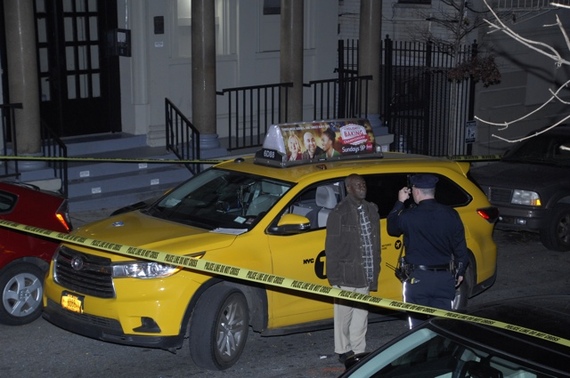Most people have heard of the acronyms DWI, DUI and OUI. But what about Driving While Tired or DWT, is that a crime? Yes, if DWT is due to reckless behavior and results in an injury or death, then DWT can have serious criminal consequences.
The driver whose truck injured comic Tracy Moran and killed Jimmy McNair is awaiting trial in New Jersey on charges of death by auto and multiple counts of assault by auto. The National Transportation Safety Board (NTSB) ruled that fatigue of the Walmart truck driver was the cause of the crash. According to the NTSB, "The driver . . . had been on duty for 13 ½ hours of a 14-hour duty day, with more driving planned. He had been awake more than 28 hours when his truck struck the limo van, including an overnight drive from his residence in Georgia to the distribution center at which he was based."
This weekend, a taxi driver allegedly struck and killed an 88-year-old woman as she was crossing the street on the Upper West Side of Manhattan. The driver, Salifu Abubkar, allegedly told the police that he had been driving the cab for 16 hours. According to Taxi and Limousine Commission Rule 2-23(a), that is a no-no: "A driver shall not operate a taxicab for more than twelve (12) consecutive hours." However, it was later revealed that Mr. Abubkar did not work 16 consecutive hours because he took two breaks during his shift.
Mr. Abubkar was charged with a fairly new law, in New York City failure to yield to a pedestrian or bicyclist by a driver of a motor vehicle when contact results in a physical injury. The law, Section 19-190 of the New York City Administrative Code, which took effect in August 2014, is punished as a misdemeanor, by up to 30 days in jail.
However, while not commenting directly on Mr. Abubkar's case, the criminal consequences for DWT in New York could be much more severe. Assuming a person feel asleep behind the wheel from fatigue and caused a physical injury or death, the act could be considered reckless behavior and imply several crimes with varying degrees of elements to be proven beyond a reasonable doubt. In New York, recklessness is defined as awareness and conscious disregard of a substantial and unjustifiable risk.
Starting with the most severe, the act could be Manslaughter in the Second Degree, which is "recklessly caus[ing] the death of another person." The crime is a class C felony, and the maximum prison term is up to 5 to 15 years. There are precedents for such convictions in states like Pennsylvania and Virginia. And there are cases to the contrary, most notably in Indiana, where falling asleep behind the wheel without warning was not considered reckless behavior.
Next are Assault in the Second Degree, a felony, and Assault in the Third Degree, a class A misdemeanor. The second degree crime is charged when a serious physical injury is caused by means of a dangerous instrument. Yes, under New York law cars are considered dangerous instruments. The third degree crime is defined by recklessly causing only a physical injury. Finally, Reckless Engagement in the Second Degree, also a class A misdemeanor, is recklessly engaging in conduct that creates only a substantial risk of physical injury.
Generally speaking it is bad idea to drive a car if you are tired, which is why medications that cause fatigue come with warnings that read: do not drive or operate heavy machinery. If you do DWT, the new pedestrian or bicyclist right of way law may be the least of your problems.
Correction: November 12, 2015
An earlier version of this post cited sources that stated Mr. Abubkar drove his taxi for 16 hours. The Taxi and Limousine Commission since revealed that Mr. Abubkar took two breaks during his shift and therefore did not drive for 16 consecutive hours.
